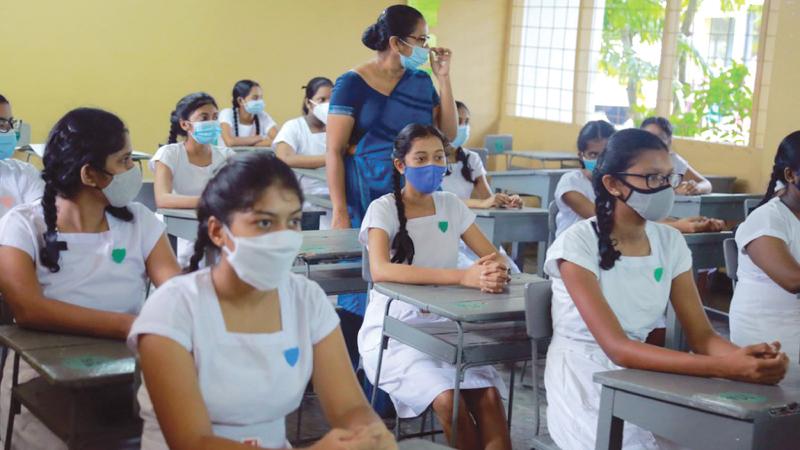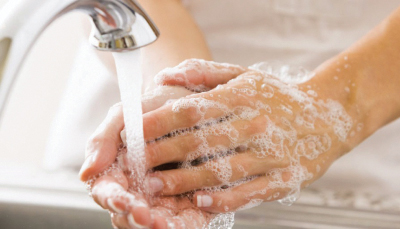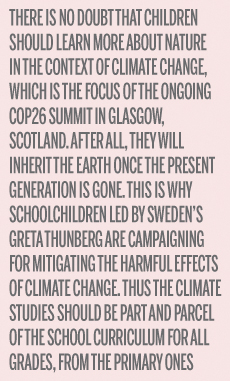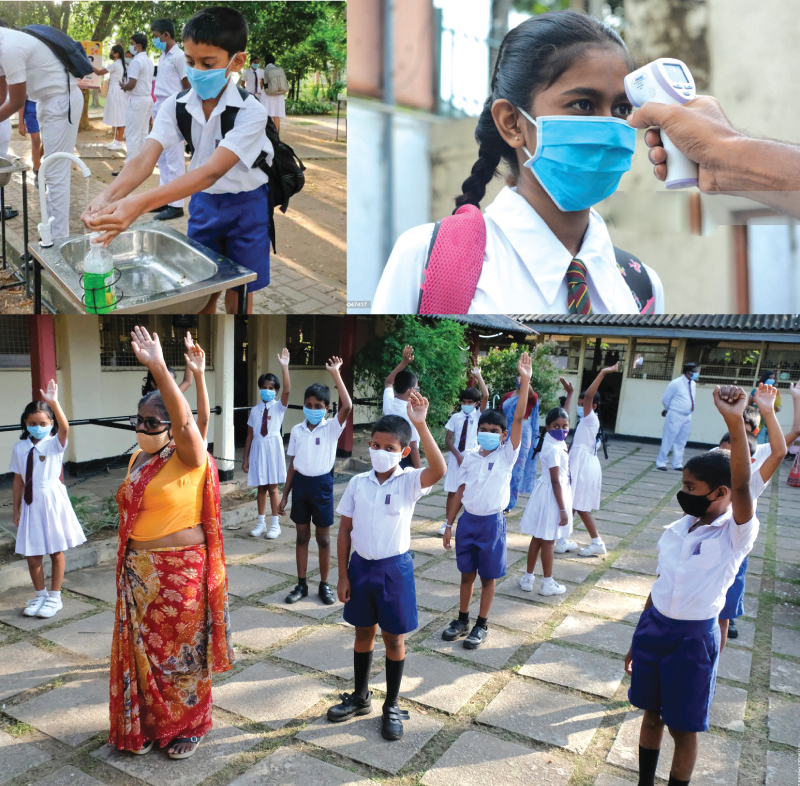
 It’s back to school again. Schools in Sri Lanka (and elsewhere) have been held in fits and starts until now, as Covid struck wave after wave. In Sri Lanka, schools were started briefly around six months ago, only to be closed again after barely two weeks. This time, we hope that the schools will be able to continue uninterrupted, barring any Covid wave.
It’s back to school again. Schools in Sri Lanka (and elsewhere) have been held in fits and starts until now, as Covid struck wave after wave. In Sri Lanka, schools were started briefly around six months ago, only to be closed again after barely two weeks. This time, we hope that the schools will be able to continue uninterrupted, barring any Covid wave.
Needless to say, the health regulations should now come first and foremost in school life. Another reason for this is that the majority of children are yet to be vaccinated, though their teachers are. There is a debate in most countries on this subject – some say that children have more natural immunity than adults and should be able to take to Covid in their stride, while others say that children deserve the same protection as adults. There are merits and demerits in both arguments and the answer is somewhere in the middle. As some have suggested, may be one dose of the vaccine is enough for children below 15. The belief that the youngest children have the greatest immunity is another reason why the youngest children are going to school first.
 There is also a debate in foreign countries over whether children should wear masks all the time, both indoors and outdoors in school settings. The jury is still out on this too – there are some schools in the US and elsewhere which do not require very young children to wear masks, while masks are mandatory in many countries including Sri Lanka. This can be described as a wise move, since children are exposed to the same environment as adults – and the same pathogens.
There is also a debate in foreign countries over whether children should wear masks all the time, both indoors and outdoors in school settings. The jury is still out on this too – there are some schools in the US and elsewhere which do not require very young children to wear masks, while masks are mandatory in many countries including Sri Lanka. This can be described as a wise move, since children are exposed to the same environment as adults – and the same pathogens.
Moreover, social distancing is an alien concept to most schoolchildren who are used to play and study in tight-knit groups. In this respect, having a mask on could offer some sort of protection. True, some young children may find masks uncomfortable and even irritating, but at the moment there is no other alternative.
Then there are other health practices that should continue even if the pandemic goes away. Children have learned to wash their hands with soap before entering the classrooms and also after doing various school activities.
This is a valuable “lesson for life” that they can continue throughout, regardless of the pandemic. Children should be educated on the importance of washing hands and the role of soap, which just loves to destroy pathogens. Others, like learning not to sneeze out in the open, are also valuable lessons that can be practiced throughout life. Indeed, we learn many lifelong habits from our earliest grades.
Nline learning
 Schoolchildren led by Sweden’s Greta Thunberg are campaigning for mitigating the harmful effects of Climate Change |
During the period that the schools remained closed, some students had access to online learning. The word “some” here is important, as only a certain percentage of students had access to the devices (laptops, tablets and smartphones) and also the 4G signals that enabled such access. Newspapers published pictures of children climbing hills and treetops to catch 4G signals to follow their online lessons. This “digital divide” is the bane of online learning, not only here but also in other parts of the world, including in affluent countries. For countries with economic constraints such as Sri Lanka, it is extremely difficult for the State to provide devices for the student population. An exception has however been made for university students in association with State banks.
Now that schools have begun in earnest, it is time to explore the possibility of widening “hybrid learning” whereby both physical and electronic forms of teaching are used to impart knowledge. This way, even those students who do not have devices at home will benefit from interactive learning.
It has also been shown that many young students will easily memorise compute generated graphics etc. rather than traditional notebook lessons.
Overall education
But online learning itself can never really replace in-person learning at any age. School is much more than a place of book learning. Teachers impart not only book knowledge but also many other traits including discipline, team work, punctuality, responsibility, friendship, life skills and leadership. None of these can be obtained online. Play is another significant element missing from the online scene. Playing outdoors with a group of friends is much better than playing a video game on a Smartphone, alone. Besides, growing children should spend some time outdoors, developing a love for the Great Outdoors and Nature while engaged in playing.
Climate studies
 There is no doubt that children should learn more about Nature in the context of Climate Change, which is the focus of the ongoing COP26 Summit in Glasgow, Scotland. After all, they will inherit the Earth once the present generation is gone. This is why schoolchildren led by Sweden’s Greta Thunberg are campaigning for mitigating the harmful effects of Climate Change. Thus the Climate Studies should be part and parcel of the school curriculum for all grades, from the primary ones.
There is no doubt that children should learn more about Nature in the context of Climate Change, which is the focus of the ongoing COP26 Summit in Glasgow, Scotland. After all, they will inherit the Earth once the present generation is gone. This is why schoolchildren led by Sweden’s Greta Thunberg are campaigning for mitigating the harmful effects of Climate Change. Thus the Climate Studies should be part and parcel of the school curriculum for all grades, from the primary ones.
Schools should also be a place where they can learn about the little things that can be done to protect Planet Earth. For example, each student can plant a tree at the school compound and also in the home garden.
They can literally watch the trees grow with them. Then there are other acts such as switching unwanted fans and light bulbs off - that can ultimately save fossil fuels and hence, reduce greenhouse gas emissions. Hopefully, children will repeat these simple acts in their homes, leading to a sort of chain reaction.
Spending some time outside will also condition and rejuvenate the minds of children, who have been scooped up inside their homes for nearly 18 months. Both children and adults have experienced moments of anxiety and depression as a result. Thus the recommencement of schools is a positive development in every possible way. However, parents should now have more faith in the school system rather than opting for tuition classes to improve the scores of their children.
The cramped conditions in many tuition classes could be a hazard in the present conditions. It is worth remembering that Covid is still in our midst and schoolchildren must take all precautions and follow all health guidelines.

